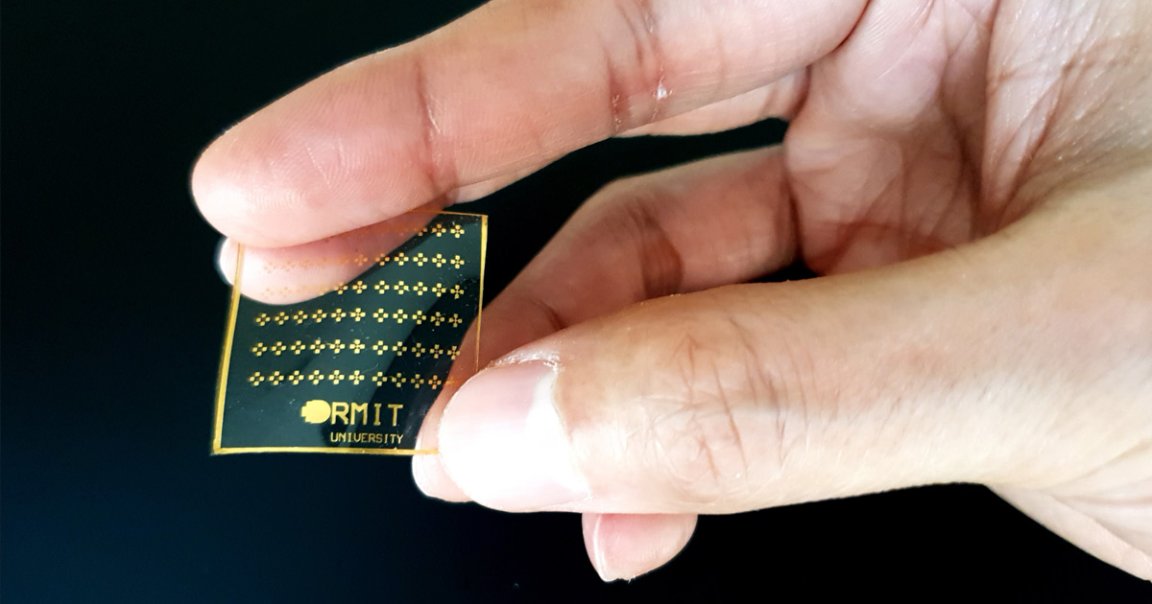
Researchers have created an artificial skin that is capable of reacting to pain just like real human skin.
The goal is to improve on prosthetics, allow for better alternatives to skin grafts, and even to “augment or compensate human skin for the development of realistic humanoids,” as the team from RMIT University in Melbourne, Australia, writes in its paper published in the journal Advanced intelligent Systems today.
The pain-sensing device mimics the nerve pathways that connect the receptors in the skin to the brain to replicate the human body’s extremely fast feedback response.
“Skin is our body’s largest sensory organ, with complex features designed to send rapid-fire warning signals when anything hurts,” research lead Madhu Bhaskaran and co-author of the paper, said in a statement.
“We’re sensing things all the time through the skin but our pain response only kicks in at a certain point, like when we touch something too hot or too sharp,” he explained. “No electronic technologies have been able to realistically mimic that very human feeling of pain — until now.”
The prototype is a thin artificial skin that can sense changes in pressure, heat or cold. Once a certain threshold is reached, the skin reacts, just like real human skin.
“It’s a critical step forward in the future development of the sophisticated feedback systems that we need to deliver truly smart prosthetics and intelligent robotics,” Bhaskaran claimed.
A separate prototype is made out of an even thinner, stretchable material that can respond to changes in temperature and pressure. A third one is an extremely thin coating, about 1,000 times thinner than a single human hair, that can react to changes in heat.
“While some existing technologies have used electrical signals to mimic different levels of pain, these new devices can react to real mechanical pressure, temperature and pain, and deliver the right electronic response,” RMIT researcher and lead author Ataur Rahman said in the statement.
“It means our artificial skin knows the difference between gently touching a pin with your finger or accidentally stabbing yourself with it — a critical distinction that has never been achieved before electronically,” Rahman added.
READ MORE: New electronic skin can react to pain like human skin [TechXplore]
More on artificial skin: Handheld Device “Prints” New Skin Directly Onto Wounds